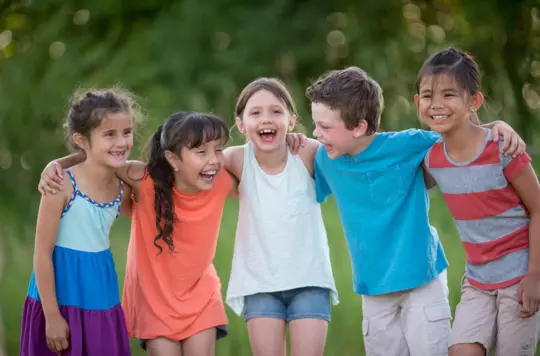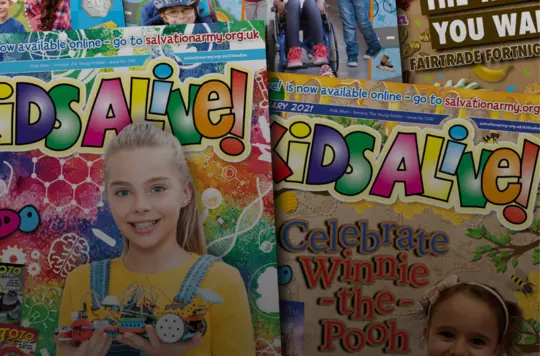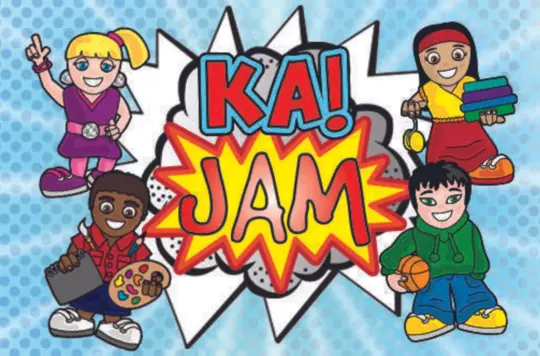27 September 2022
Kids Alive! World: Tips for going green
Helping children live a healthy and an active lifestyle and care for their physical, mental and spiritual wellbeing

The Kids Alive! team celebrate The Great Big Green Week (24 September – 2 October), a campaign by the Climate Coalition, of which The Salvation Army is a member.
- Share this article with children in your family or with your children's worker at your corps so they can pass it on – you may find the information helps you too!
We’re celebrating The Great Big Green Week, so here’s some info and tips on how to get involved in caring for the planet – not just for one week but for the rest of your lives.
Carbon footprint
A carbon footprint measures how much carbon dioxide someone releases when they use energy. The bigger your carbon footprint the greater the impact on the climate.
Greenhouse gases
Carbon dioxide is a gas released by fossil fuels – such as coal, petroleum, gas and oil. It’s called a greenhouse gas. We use fossil fuels for electricity, heating and transportation.
Greenhouse gases trap heat energy and change the climate. They cause global warming – the rise of the Earth’s surface temperature. This can cause droughts and floods, which destroy crops and homes. Warmer oceans can harm animals and destroy the places where they live.
Take action!

If everyone makes small changes, they can make a big difference together!
- Use energy-saving lightbulbs.
- Turn off lights, TVs and computers when you’re not using them.
- Turn down the thermostat that controls the heating in your home by one or two degrees.
- Walk, ride your bike or use public transport when possible.
- Buy local produce if possible. Imported goods have a much bigger carbon footprint.
- Eat less meat.
- Work out your carbon footprint with the Footprint Calculator at wwf.org.uk.
Recycle and upcycle
Making clothing, appliances or furniture uses massive amounts of energy. That’s why it’s a fantastic idea to recycle as much as you can. You can also buy upcycled or pre-loved items! Upcycle simply means giving new life to something by repairing or redecorating it.
Reducing your carbon footprint and recycling is not only good for nature but it also saves you money!
Here are some things you can recycle:
- Plastic
- Tins
- Cardboard
- Clothes
- Paper
- Food waste
- Garden waste
- Glass bottles
Do you know that about 10,000 items of clothing are sent to landfill sites every five minutes?
There are loads of amazing charity shops that sell good quality second-hand clothing, toys, books or furniture. You can sometimes even find top brands at bargain prices!

Why don’t you visit a Salvation Army charity shop or clothing bank near you to donate or buy something?
You could also swap clothes or toys with some of your mates or neighbours. Make sure you get your parents or carers’ permission first!
Nurturing nature
God made the Earth and everything in it. He wants us to take good care of it. Nature is also awesome, beautiful and gives us joy and a sense of wonder. Check out Psalm 104:24–25 and Romans 1:20 in the Bible.
Every living thing is connected and needs each other! Biodiversity (which means a variety of animal and plant life) keeps soil fertile and rivers and seas clean. Trees help to keep the air clean by creating oxygen through photosynthesis. Taking care of the planet is good for our wellbeing, protects our health and keeps food on our plates!
Do you know that bees pollinate more than a third of what we eat and earthworms help increase soil fertility?

Top tips:
- Grow your own vegetables.
- Plant a tree.
- Grow flowers that attract butterflies and bees.
- Adopt an animal through World Wide Fund for Nature or your nearest zoo.
- Volunteer to help clean up a park or a beach if you live near the coast.
- Go for a nature walk and see how many different insects, birds, plants or animals you can spot.
- Design a poster for your school noticeboard about caring for nature.
- Join a litter pick.
Discover more

For kids: The Kids Alive! team explores the benefits of laughing and how the Bible is full of joy.



